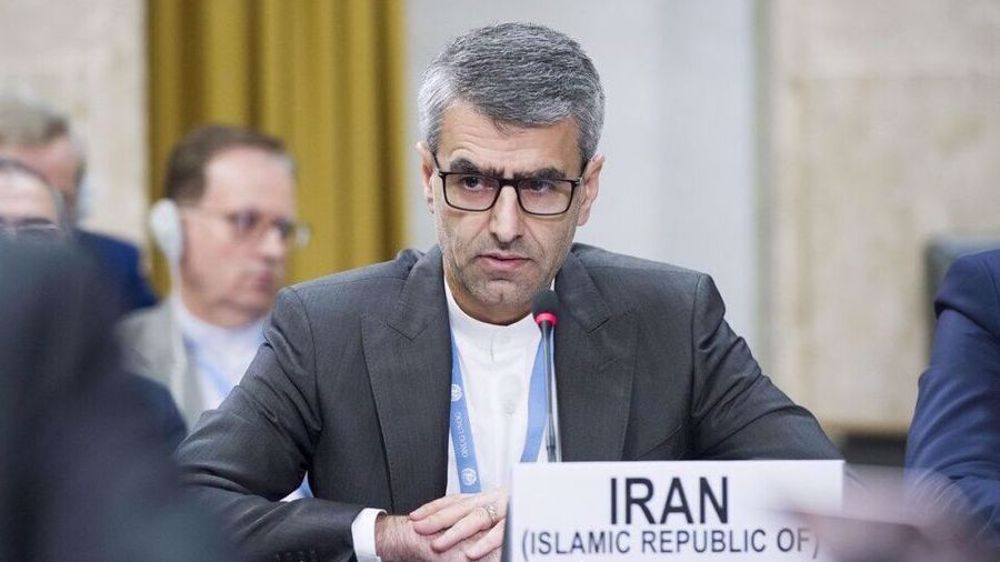Iran calls for identification, punishment of Sardasht chemical attack perpetrators
Iran's envoy to the UN office in Geneva has called for identifying and punishing the perpetrators of a 1987 chemical attack on the Iranian city of Sardasht in West Azerbaijan Province by Western-backed Iraqi dictator Saddam Hussein.
Speaking in a meeting held to commemorate the 35th anniversary of the chemical bombing, Esmaeil Baghaei Hamaneh called for investigation, prosecution and punishment of natural and legal persons involved in the transfer of chemical equipment to Saddam's regime.
The US and several other European countries, including Germany and the Netherlands, played an irrefutable role in the attack as they supplied Saddam's regime with chemical weapons, he said at the meeting also aimed to discuss the human rights dimensions of the use of chemical weapons in the Iraqi imposed war on Iran in the 1980s.
He decried the inhumane US sanctions in the field of medicine as “double injustice” against the victims of the Sardasht bombing.
Hamaneh said it was a moral and legal responsibility for all governments to cooperate to compensate the victims and survivors of the attack, adding that the criminal prosecution and punishment of the perpetrators of war crimes and those aiding such crimes is a common duty.
He emphasized that legal divisions and formats should not prevent the use of human rights foundations and mechanisms to appeal to national and international authorities to pursue the legitimate demands of chemical weapons victims and to assert their rights.
Also in the meeting, several video clips containing interviews with the injured and survivors of the Sardasht chemical attack were played, which showed the continuous suffering and pain of the victims, as well as the limitations and problems of access to medicine due to the illegal sanctions of the United States.
The chemical bombardment of Sardasht was conducted on June 28, 1987, almost seven years after the regime of Saddam Hussein waged a war on Iran.
During the war, which lasted eight years, the Iraqi army continuously employed chemical weapons against Iranian combatants and civilians, leaving tens of thousands dead on the spot and many more suffering for years to come.
Over 100 people were killed in the Sardasht attack and thousands more were exposed to chemical agents.
After three decades, many of the survivors of the chemical attack still have to live with the long-term respiratory and even psychological effects of inhaling mustard gas used in the attack.
D-8’s role in Iran’s economy after Cairo summit
China slams US as ‘war-addicted’ threat to global security
China ‘firmly opposes’ US military aid to Taiwan
VIDEO | Press TV's News Headlines
President Yoon Suk Yeol to be removed from office
At least 19 Gazans killed by Israeli airstrikes since dawn: Medics
Leader: Iran neither has nor needs proxy forces
US fighter aircraft shot down ‘in friendly fire’ amid aggression on Yemen










 This makes it easy to access the Press TV website
This makes it easy to access the Press TV website